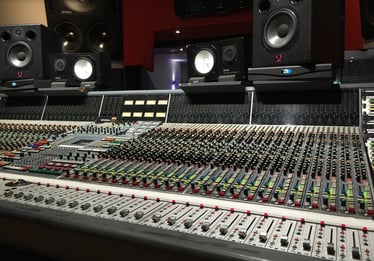
Sound engineers, who also may go by the name of an audio engineer, will have an important role within the music industry. If you have spent time at a concert, you may be astounded by some of the quality and the clarity that comes out of the music you are hearing there. You can thank a sound engineer’s skills and their hard work at making this possible.
A sound engineer is a professional who will manipulate, reproduce, and mix the effects of sound to get the desired result. Many will do this with music, though it is common to see them at work in theaters, conferences, and other sounds that have a crowd listening.
If you have dreamed of becoming a sound engineer, there are a few steps you can take to help you out as a beginner. These include:
1. Do not Focus on the Mastering
Mastering can be a lot of fun to do and will add a little different sound to the music that you play. As a beginner though, it is best to avoid it right now. Mastering is its own art form and you do not want to jump in and do too much in the beginning.
Start with some of the basics and then come back to mastering when you are ready to handle it better. Once you get those basics down and understand some of the work you need to do with other parts of the business, you can come back and learn mastering and all the cool things that go with it.
2. Pick the Gear for the Room
It is a good idea to consider the room you plan to do your work in and then pick out the right gear to fit in there. If the gear is not designed to work well in the room where you would like to play, you do not want to add a bunch of microphones to the area and hope it turns out fine.
Many times the room you pick will not have the right acoustics to get things done. A new location or some creativity will help to improve the sound. This can help you experiment a little bit and learn what will work the best.
3. Start with a Few Items

When you first get into sound engineering, you may be excited. This is great news because it will help you get started with your goals and will give you the motivation to keep going. However, it may also make you go a little bit overboard with some of your projects and what you want to get done.
Start out with just a few items rather than just jumping all in. This includes the equipment that you decide to buy. You may walk into a music store and see 100 microphones that all promise to change the sound. But do you really understand how each of them are different?
One or two microphones are enough when you are a beginner. There are many different sounds you can get out of each one with some practice. With just a few options, you have to get creative and really learn how that microphone works. If you decide that you need more later, you can add them in.
This is the same for all the equipment you decide to purchase. There are a lot of cool things that you can purchase as a sound engineer. Keep it simple in the beginning. This helps you to learn what is most important and can save you money on items you will never use. You can always purchase more items later if you need them.
4. Learn About the Phasing
It is a good idea to learn some of the basic techniques about phasing, even as a beginner. It is hard to work with though so give yourself plenty of time to work with it and become a master with it. Phasing will make a world of difference when it comes to the sounds you want to produce.
5. The Plug-Ins are Worth It
As a sound engineer, you will be able to utilize a lot of different plug-ins with your music. When you learn how to properly use these tools, you will be able to change up the sound you are using to something unique. Plug-ins are meant to be tools just like the instruments and your microphones.
Start to slowly add to your plug-in collection. You do not need to go insane and purchase a ton of them the first day you decide to become a sound engineer. This may be a little bit of overkill and will not help you out because that is too much to handle at once.
If you start to add in the plug-ins as you learn new techniques and get more familiar with your work, you will see the value they can bring to everything. As you progress, you will soon have a big collection of plug-ins that you are sure to enjoy.
6. Be Careful with Your Marketing
As a beginner, you do not need to worry too much about marketing right now. Marketing is not a bad thing, but right now you need to focus on learning and creating a song that others want to hear. If you try to market yourself too early, it can harm your reputation and make it hard to see success.
Wait on the marketing until you have something to show to a customer. In the meantime, focus on creating amazing music and perfecting some of the skills that you need to create your own music.
7. Use Some Reference Tracks
Reference tracks are going to help you handle some of the comparisons as you get used to the different sounds present in the music. These are professional mixed, edited, and remastered songs that are used in the comparison.
The point of using these is to give you a baseline for a sound that you can then match and personalize the way that you want. You will be able to find quite a few of these and then can often be able to pick out an infinite range from music genres to fit your needs.
As you are getting used to becoming a sound engineer, these reference tracks will make it easier to mix and understand how tracks work. They will also train your ears to listen critically. For example, when you compare your own track back to the reference track, it is easier to understand the importance of balance in the song.
This can also be a way that you can track to see whether you are hitting that specific sound that you want while doing the work. There are software programs that will do this for you. But to get really good at sound engineering, you need to do the work for yourself and reference tracks can help make that easier.
8. Work on Ear Training
Along the same idea, spend some time improving your skills in ear training. This is the only effective way to really understand the music you are playing and to make sure that you can catch the small differences in sound that will really change the music.
Dedicated listening is going to be an important part of creating music. It is impossible for you to know if something sounds good if you do not listen to it. Ear training is something that you can focus on and improve, though it will take some time.
You will quickly find that mixing will become focused on other things including all the different tools. These are meant to make the music sound better to the ear. Even though it may not seem like it, a sound engineer who can mix and produce music based on what they hear, rather than what is presented on a screen, will produce better material.
This is something you need to work on over time. Ear training is hard and while it may come naturally to some people, it takes a lot of time and effort for others. The only way to improve is to keep working at it.
9. Learn How to Edit the Music
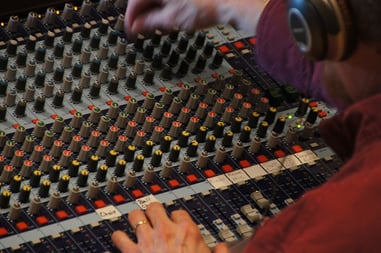
Editing your music is going to be another piece of the puzzle, one that is often overlooked because it seems long and tedious to someone who is just getting started. You may want to just make the music and hope it all fits together. But if you want to create something that is unique and amazing, then editing has to be part of this.
To do well with editing, you will need to be skilled with some of that ear training that we talked about before. This comes with practice and your editing may help with improving it. If you still need some help, you can consider working with another sound engineer who may be able to catch mistakes a little better and will give you advice.
Look for several things in the music you create. For example, you do not want abrupt starts and end of regions or the song will not have the natural flow you are looking for. Try to find ways to cut those out of the song.
Another issue could be the guitar hum or any click-track noises. If these are in the song, it is a sure sign that a novice producer did the work. Your goal is to create a sound that, when done, is simple and natural.
10. Follow the Order
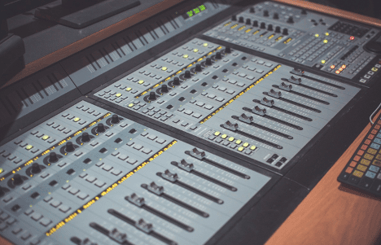
There is an order to the whole process and it is a good idea to follow it as much as possible. This helps the song to sound better to any audience and will ensure you do not leave any important steps out.
As you work through the order, you will need to take care of the levels, the EQ, the compression, and then the depth. This is the order that you need to follow each time you do a mix with your music.
If you skip out on a part or do these out of order, it will create a song that does not flow the way that it should. The best order is the one above, no matter what ideas you have that will make the song sound amazing. The song will sound horrible if you do not stick with the order.
11. Spend Time Learning
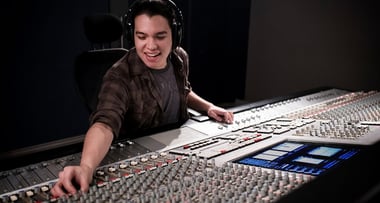
Your goal here is to spend as much time learning. Whether you are training your ears or seeing which microphone is going to work the best, or you need to learn which plug-ins and equipment will work the best, it is important to spend a good deal of time learning along the way.
Have a few sessions where you only have a goal of learning the whole time. Go in and do not make plans to get work done or to mix a certain number of songs. The only thing you want to do here is to try out some new things, experiment, and see what you can learn.
This helps to take some of the pressure off the process. You have to learn at some point. If you try to learn while creating the music and being under pressure, then things can go very badly. If you show up in the sound studio and just have some fun, then this makes it easier to learn.
Use manuals, training books, and anything else you can to help you learn. The best sound engineers are willing to learn something new and to have some fun along the way. Not every session has to be about learning, but try to include this in some sessions so you can grow.
Learning How to Be a Sound Engineer

You will need to take some time and practice to become good at sound engineering. Some people seem to have this as second nature and they can make it work in no time. Others need more time to practice and get their bearings. By following some of the tips above and being open to trying new things out, you can perfect your craft of being a sound engineer in no time!















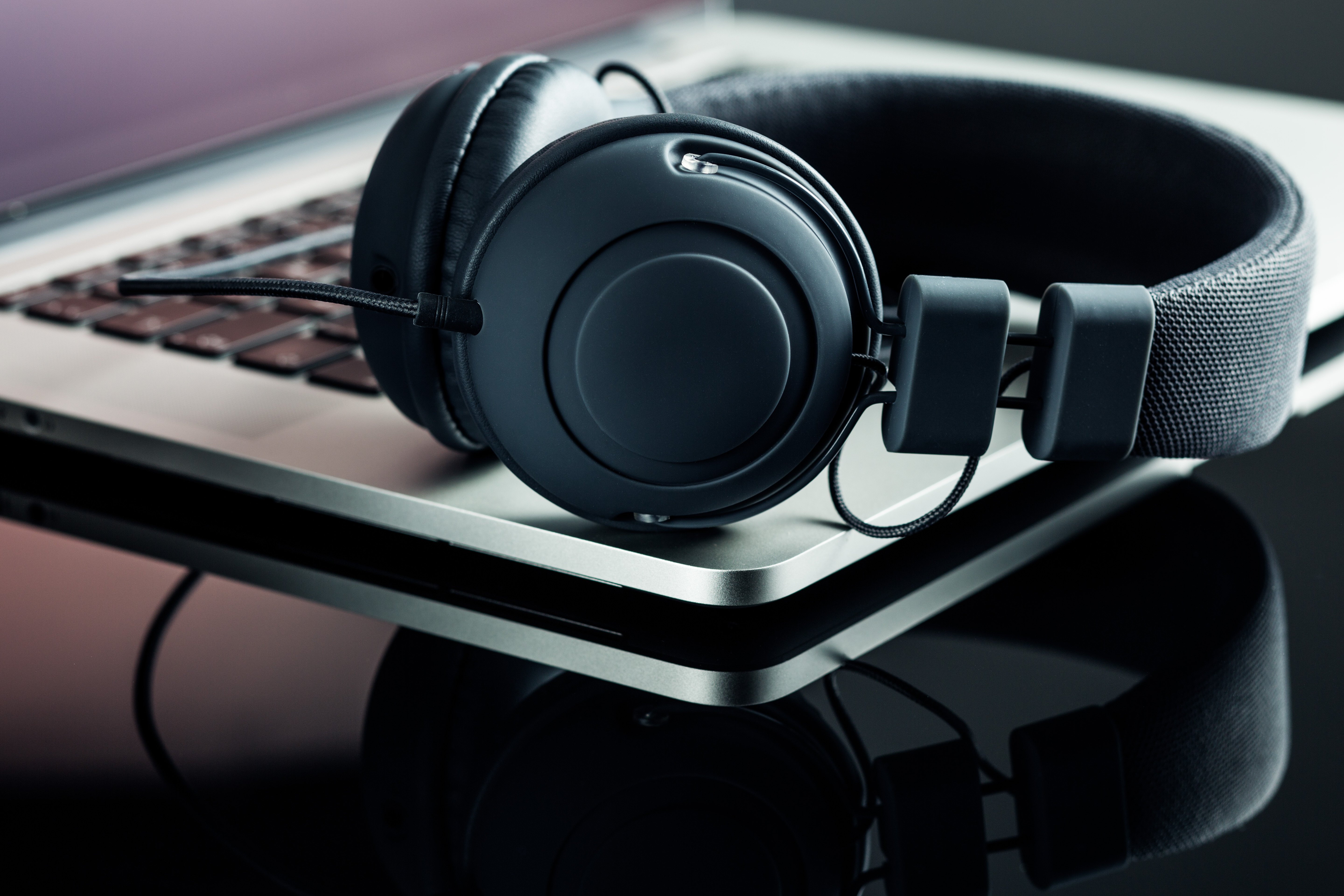

_Cropped.png?width=1600&name=02%20(2)_Cropped.png)




















Your Comments :